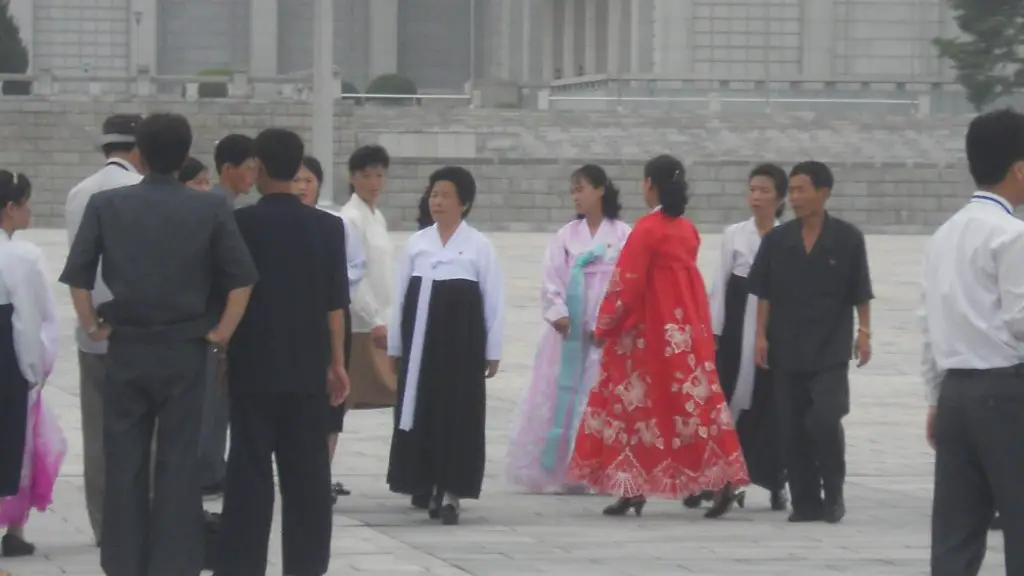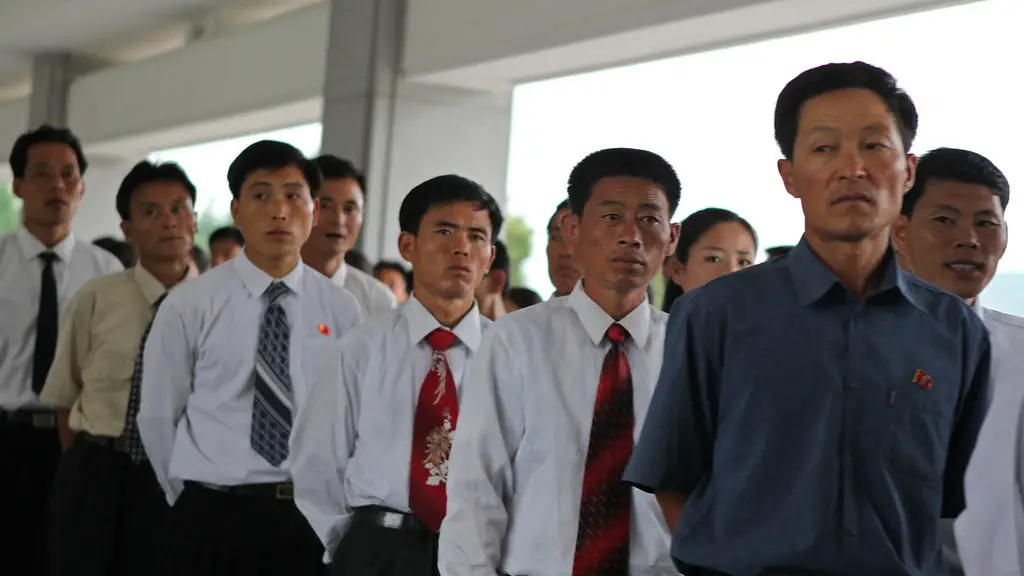Nuclear Arms Race
The nuclear arms race is a highly contentious and complex issue, particularly in relation to North Korea and its pursuit of nuclear weapons. For over 60 years, North Korea has been on a mission to obtain nuclear weapons despite the global consensus that strongly discourages such proliferation. North Korea’s primary motivation is the sheer power that the possession of such weapons provides.
The North Korean regime has continued to pursue these weapons despite attempts by the United Nations, and the US, to persuade the nation to disarm. Despite sanctions and an effort to counter North Korea’s nuclear ambitions, the nation has continued to invest large amounts into its program. North Korea’s desire to possess nuclear weapons is driven by a number of factors.
First and foremost, North Korea is widely-regarded as a rogue state, one that is intent on enforcing its hegemony onto other nations. Additionally, with a nuclear weapon its rulers can ensure the survival of the regime, at least in the short-term. North Korea’s place in the world has been affected by the fact that it has few allies and is viewed as an outsider by its neighboring countries.
This has resulted in a feeling of exclusion, leading North Korea to assume an isolated and defiant stance towards the international community. Its approach to obtaining nuclear weapons can therefore be seen as an attempt to gain recognition and respect as an international player. Nuclear weapons are therefore seen as a way of asserting itself on the world stage and ensuring its autonomy.
The proliferation of nuclear weapons has been a major concern for the international community, and North Korea’s continued pursuit of them has been met with a significant amount of opposition. This is especially true in relation to North Korea’s claims that their weapons are for “self-defense”. There are, however, those who believe that North Korea may have another motive for their nuclear program.
Some believe that North Korea’s nuclear ambitions are more about the economic benefits that nuclear weapons may bring, rather than solely concentrating on national security. In other words, North Korea could be attempting to use its nuclear program to solve its domestic economic issues. This could include leveraging its nuclear program as a means of “blackmailing” or coercion in order to receive resources or aid from foreign powers, such as the US.
Power Dynamics
Another possible motivation behind North Korea’s pursuit of nuclear weapons is a desire to re-establish the power dynamic in East Asia. For many years the region has been dominated by China and its influence in the area appears to be gradually diminishing. In response, North Korea has seen the possession of nuclear weapons as a way of maintaining security and gaining an edge over its rivals. Through the possession of such weapons, it can not only protect its own citizens but also act aggressively against its neighbors.
It is also likely that North Korea is attempting to disrupt the US-backed alliances in the region. US allies, such as South Korea, Japan and Taiwan, are supported by the US’s presence in the region, however, if North Korea were to obtain nuclear weapons, this protection could be significantly diminished. This could result in a change in the power balance in East Asia and provide North Korea with a greater level of influence and autonomy.
North Korea’s intentions in pursuing nuclear weapons are thus a mix of both practical motives and geopolitical considerations. The global community is however largely in agreement that the global proliferation of nuclear weapons is counter-productive and ultimately a danger to world peace.
International Diplomacy
Due to the severity of the threat and the international consensus against the proliferation of such weapons, the United Nations has been actively attempting to prevent North Korea from moving forward with its nuclear plans. Various diplomatic efforts have been made, including imposing economic sanctions as a form of coercion to encourage North Korea to abandon its nuclear ambitions.
These have, however, failed to have the desired effect and despite ongoing efforts to persuade North Korea to disarm, the country appears to be determined to obtain nuclear weapons. This has put a lot of strain on international relations and it is clear that, unless an agreement is reached, the situation is unlikely to be resolved anytime soon.
Military Intervention
The possibility of military intervention should also not be discounted. There have been various calls for action, particularly from countries such as the United States and Japan, and although this may be an effective method of preventing North Korea from achieving its objective, it is also a potentially dangerous option with far-reaching consequences.
For now, the most effective approach appears to be through diplomatic channels, which do at least offer some hope of a successful outcome and a resolution to the situation. Despite the lack of progress so far, there is still a possibility that North Korea may eventually see the benefits of having a peaceful relationship with the rest of the world and thus, abandon their nuclear plans.
Economic Sanctions
Economic sanctions have also been proposed as a way to discourage North Korea from pursuing its nuclear plans. These would involve limiting the country’s trade and investments, with the aim of disrupting the flow of money and resources to the regime.
This could have the desired effect of dissuading North Korea from its nuclear ambitions, as the economic hardship could lead to destabilization and widespread unrest. This could also form the basis for further negotiations with the country, as it may be more open to discussion when faced with the prospect of economic collapse.
South-North Korea Summit
Recently, a major development was reached when the South-North Korea Summit took place in April 2018. This was significant as it was the first of its kind in over a decade and provided an opportunity to establish a new relationship between the two countries. It was hoped that such a move could be the groundwork for resolving the tension over North Korea’s nuclear plans.
The summit was successful in that it enabled a dialogue between the two countries to begin and marked a significant milestone in their history. Despite the optimism at the time, it is not clear whether this will make a lasting impression on North Korean leadership and move the country away from its nuclear ambitions.
International Pressure
International pressure has also been growing, with the United States leading the charge and attempting to rally the international community behind its goals. This involves putting significant pressure on North Korea to make concessions and abandon its nuclear plans.
The US has also been reaching out to China, its main ally in East Asia, in an effort to coordinate a response to the North Korean crisis. If a successful strategy can be established, there is still a chance that North Korea may be persuaded to abandon its nuclear plans and pursue peace instead.
Political Outreach
The ultimate attempt to prevent North Korea from pursuing its nuclear plans is through political outreach and engagement. Dialogue, rather than coercion, may be the most successful way of making progress and finding a resolution to the conflict. With the South-North Korea summit, progress has been made and it is hoped that this will eventually lead to a lasting impact and further de-escalation of the situation.
However, for talks to be successful, it is paramount that all parties involved are willing to compromise and work towards a peaceful solution. If a unified stance can be adopted, it is still possible that North Korea can be persuaded to abandon its nuclear ambitions.





